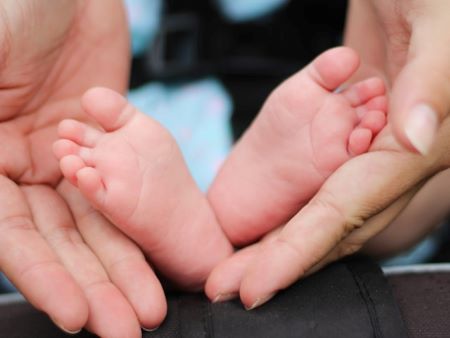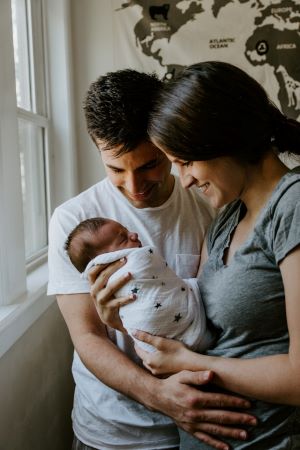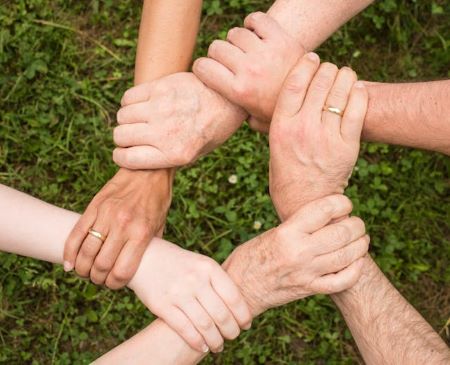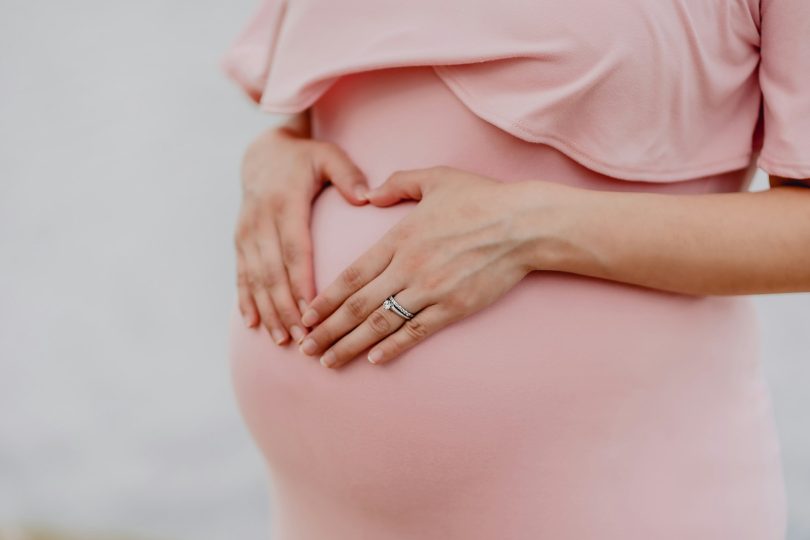The Essential Role of Doulas in Community Wellness
For most women, pregnancy and new motherhood is a joy – at least some of the time.

But most mothers also experience worry, disappointment, guilt, competition, frustration, and even anger and fear. As the psychiatrist Daniel Stern explained in the 1990s in his books “The Motherhood Constellation” and “The Birth of a Mother,” giving birth to a new identity can be as demanding as giving birth to a baby.
The process of becoming a mother, which anthropologists call “matrescence,” has been largely unexplored in the medical community. Instead of focusing on the woman’s identity transition, more research is focused on how the baby turns out. But a woman’s story, in addition to how her psychology impacts her parenting, is important to examine, too. Of course, this transition is also significant for fathers and partners, but women who go through the hormonal changes of pregnancy may have a specific neurobiological experience.

For many women, becoming a mother is an ultimate goal, life’s mission, and purpose. Becoming a mother is embedded in women’s nature. When we look at little girls, they like to play with their dolls, look after their toys, and play homes and schools. When I ask my seven-year-old daughter, “Who do you want to be when you grow up?” she says, “I want to be a mum. I want to have four children.” And if we look back at our childhood, I am sure there was a stage we went through as girls when we wanted to become mums. When we watched our mothers and sisters or other women in our community having children, looking after them, we wanted to be just like them one day. This is who we are as women — we are carers, we are nurturers, we are mothers. Even if some of us are not blessed with our own children. Just like Mother Earth looks after all of humanity, we are looking after the seedlings down here on this planet.
Becoming a mother for the first time can be an overly exciting journey. There is so much excitement, hope, and dreams, but at the same time, there can be anxiety, fear, and worries as you have no idea what to expect, what’s ahead, as you have never been in that role before. Giving birth to your baby also means you are giving birth to yourself, to your new role of becoming a mother. I remember being pregnant for the first time. I enjoyed every single day of my pregnancy, maybe not the part when I was getting sick, but I loved watching my belly grow and feeling life growing in me. Our little bundle of joy was moving and kicking. I felt all the unusual sensations; it was a miracle – to experience life within you. And as the belly grew, so did my visions and dreams about the new world together with our baby afterward. Of course, I was not living completely in pink clouds about the reality of having a baby, but I ignored all the negative stories, hoping they wouldn’t apply to us.
After my son was born, my world changed immediately. I said that 12 years ago and am saying it again now. It felt like entering a different universe, not even a different world. It was something I had never experienced in my life before – things I had never seen, emotions I had never felt, feelings that had never arisen before, physical sensations I didn’t think existed, extreme levels of tiredness, worries and doubts, but at the same time, the same levels of joy, love, and happiness.

It was extreme on both sides – remarkably high and very low. I could not sleep either from worries or from being so happy with what I had been given.
Becoming a mother is a huge transition in every woman’s life. It is a rite of passage that needs to be honoured, acknowledged, celebrated, and talked about. It does not apply only to people giving birth. It applies to the whole family; it applies to the whole community.
The questions are:
How can we as a community support this beautiful sacred transition?
What power do we hold as individuals?
There is a saying: it takes a village to raise a child. We can rephrase that and say it takes a village to support the family. In our society, we have lost the sense of community, the sense of belonging and oneness. Especially living in the Western world, our focus goes on looking after ourselves first rather than the collective.
How can we bring back the village, our tribe?
That is the question we need to ask ourselves.

Because only together can we help and heal ourselves and, in this case, help women and their families thrive during the beautiful rite of passage called – becoming a mother.
One way women and their families can be supported going through this transition in their lives is by choosing to hire a doula. I did not know what a doula was until a few years ago when it came into my awareness after I joined a beautiful women’s circle in our local community. A circle where women gathered from various stages in their lives, with different life experiences. I remember we were talking a lot about birth, and I was wondering why.
Why were we talking so much about it?
For most of us, our children had already grown up, and in my mind, I was done with it. Now I see that there are no coincidences, only synchronicities. All the conversations planted a seed in my consciousness until I decided to become a doula. And once again, a new universe was revealed to me. I learned (and still am) how women can give birth differently from what we are used to seeing in our Western society, how to find your voice and say NO to so many unnecessary interventions, how to honour natural birth, and how beautiful the rite of passage of becoming a mother truly is.

So, what do doulas actually do & how can they be helpful in raising healthier communities?
A doula is a trained professional who provides emotional, physical, and informational support to new and expectant parents before, during, and after birth, as well as possibly while trying to conceive or in the early postpartum period.
There are many different types of doulas, along with various training, certifications, traditional practices, and perspectives on doula care. Evidence shows that doulas are valued members of the care team who help improve health outcomes for parents and babies. Research suggests that the presence of a doula can lead to a decrease in medical interventions, including caesarean births and the use of pain relief medication.
Furthermore, a doula’s support is associated with better birth outcomes, improved mental well-being, and higher rates of breastfeeding/chestfeeding success. These benefits can significantly outweigh the cost, making a doula’s services a valuable investment in your childbirth experience.
Birth companions have been present in all cultures and time periods. In recognition of this, U.S. anthropologist Dr. Dana Raphael used the term “doula” to describe labour companions in her 1966 doctoral dissertation. Later, she expanded and popularised this concept in her 1973 book “The Tender Gift: Breastfeeding.” Here is an excerpt where Dr. Raphael explains her concept of doula work:
“We have adopted a word to describe the person who performs this function–the doula. The word comes from the Greek, and in Aristotle’s time meant ‘slave.’ Later it came to describe a woman who goes into the home and assists a newly delivered mother by cooking for her, helping with the other children, holding the baby, and so forth. She might be a neighbour, a relative, or a friend, and she performs her task voluntarily and on a temporary basis. It is in the latter context that we use the term “doula” as a title for those individuals who surround, interact with, and aid the mother at any time within the perinatal period, which includes pregnancy, birth, and lactation. The function of the doula varies in different cultures from a little help here and there to complete succouring [aiding], including bathing, cooking, carrying, and feeding. Whatever the doula does, however, is less important than the fact that she is there. Her very presence gives the mother a better chance of remaining calm and nursing her baby.”
~ Raphael 1973: 24

 Janko Ferlič on Unsplash
Janko Ferlič on UnsplashWhy Hire A Doula?
This is a question that is on many expectant families’ minds.
The simple answer is that a doula offers a unique kind of support during one of the most transformative periods of one’s life. There are many reasons to hire a doula. A doula is like a trusted friend who is always by your side, providing reassurance, answering your questions, and assisting with your birth plan. They bring knowledge about the birth process, help with understanding your options, and assist with navigating the healthcare system. This kind of continuous, personalised care is unique to doula support and can make your childbirth journey smoother and more empowering.
So, what about the community then?
Although it might look like doulas only work directly with one family at a time, in fact, a wider range of people are involved once someone decides to hire a doula. As doulas are growing in popularity and demand, people are doing a lot more research beforehand, having conversations with those who have used doula services before. Watching what is happening in our maternity hospitals, people start asking more questions and don’t just blindly follow medical professionals’ advice. People are looking for different alternatives, and in doing so, the role of the doula is mentioned and discussed in various social settings. Some people even refer to them as angels and wish everyone would have access to this service. Doulas are opening conversations, discussions, and debates just by honouring natural ways of birthing and acknowledging sacred rites of passage. People are leaning into this more and more because we have strayed far from all things natural. Some are finding out more about how our ancestors used to live, and it resonates with many of us. But we don’t have to just reminisce about how it was; we have the power to change that here and now, anywhere on this planet.

Next time you meet your good friends over dinner, why don’t you ask the question:
“Have you heard of doula work?”
& watch where the conversation takes you.
Main – Photo by Juan Encalada on Unsplash




